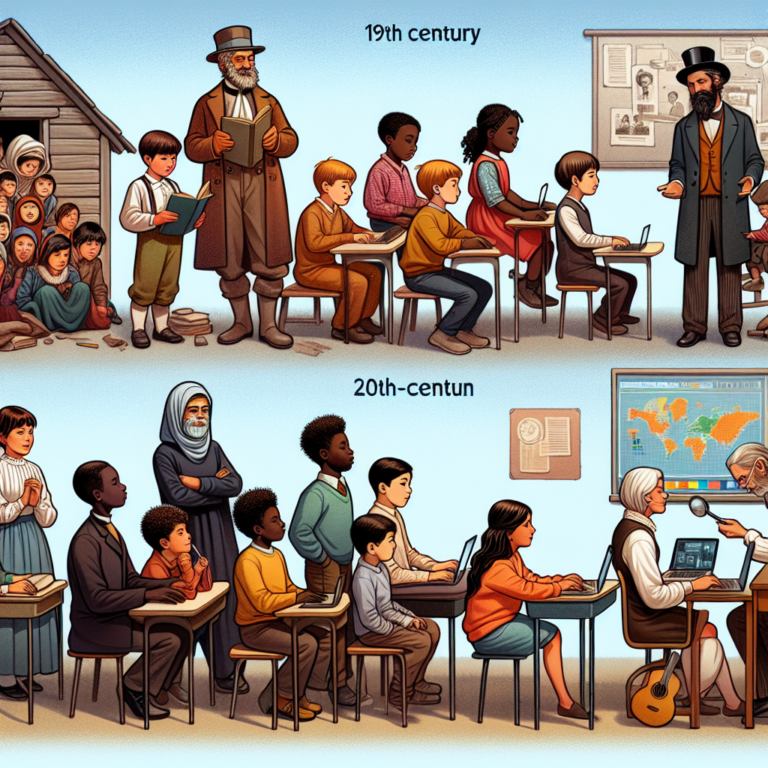A Closer Look at Canada’s Education Policies
Canada is recognized worldwide for its outstanding quality of education—from primary school to post-secondary studies. But what’s behind this success? In this article, we delve into the education policies that have set Canadian universities and institutions apart and have made Canada one of the most sought-after destinations for study abroad programs.
Join us as we explore the robust framework that supports learners across the country and discover why Canada’s education system is a beacon for international students.
The Foundation of Canada’s Education System
Canada’s education policies are built on a foundation that values inclusivity, diversity, and accessibility. Unlike many countries, education in Canada is a provincial responsibility, and thus, there is no federal education system. This means policies can be tailored to the specific needs of each province or territory, allowing for a flexible and responsive education system that meets the diverse needs of its population.
Provincial and Territorial Autonomy
Each province and territory has its own Ministry or Department of Education and is responsible for the curriculum, assessment, and funding of schools within its jurisdiction. This autonomy allows for a close alignment with local cultures, languages, and priorities, which is particularly important in a country with such a vast geographical and cultural diversity.
The Role of the Federal Government
While the provinces and territories are primarily responsible for education, the federal government plays a supporting role, particularly in areas of research funding and international education. Through initiatives like the Canada Research Chairs program and the Canadian Foundation for Innovation, the government invests in post-secondary research that contributes to innovation and economic development.
Excellence in Higher Education
Canadian universities are known for their high academic standards and rigorous quality control. With a strong emphasis on research and development, Canada’s higher education institutions contribute significantly to the country’s reputation as a leader in innovation.
World-Class Universities
Canadian universities regularly rank high in global university rankings, thanks to their strong focus on research, well-qualified faculty, and the quality of their graduates. Institutions such as the University of Toronto, McGill University, and the University of British Columbia are examples of Canadian universities that have achieved international acclaim.
Research and Innovation
Research is a critical component of Canada’s education policies. The government, through various agencies and programs, provides substantial funding for research in science, medicine, engineering, and the humanities. This investment has led to Canada being a leader in fields such as artificial intelligence, health sciences, and environmental technology.
Access and Affordability
A key aspect of Canada’s education policy is its commitment to making education accessible and affordable for all Canadians. Financial aid programs, scholarships, and lower tuition fees compared to many other countries make it possible for a wider range of students to pursue higher education.
Financial Aid and Scholarships
Canada offers a range of financial aid options for students, including loans, grants, and scholarships. The Canada Student Loans Program (CSLP) provides financial assistance to students who demonstrate financial need, helping them to cover the costs of their post-secondary education.
International Students and Study Abroad Programs
Canada’s policies are also geared towards attracting international students. Study in Canada Scholarships and various university-specific scholarships are available to international students, making Canada an attractive destination for those looking to study abroad. In addition, policies such as post-graduation work permits allow international graduates to gain work experience in Canada after completing their studies, further enhancing the appeal of Canadian education.
Innovation in Curriculum and Teaching Methods
Canadian education policies also emphasize the importance of innovative curriculums and teaching methods that prepare students for the demands of the 21st century.
Emphasis on Technology and Digital Literacy
With the integration of technology into the classroom, Canadian students are equipped with digital literacy skills that are essential in today’s world. From coding in the curriculum to the use of educational apps and platforms, technology is a significant aspect of learning in Canada.
Focus on Critical Thinking and Problem Solving
Canadian education policies place a strong focus on developing critical thinking and problem-solving skills. Through project-based learning and inquiry-based approaches, students are encouraged to think independently and creatively, preparing them for the challenges of the future.
Challenges and Future Directions
Despite its strengths, Canada’s education system is not without its challenges. Regional disparities, the need for reconciliation with Indigenous communities, and the ongoing impact of the COVID-19 pandemic are areas that require ongoing attention and policy innovation.
Addressing Regional Disparities
While provincial autonomy allows for tailored education policies, it can also lead to disparities in education quality and resources between provinces and territories. Efforts are continuously being made to address these gaps and ensure that all Canadian students have access to a high-quality education, regardless of where they live.
Reconciliation and Indigenous Education
Canada is actively working on reconciliation with Indigenous peoples, and this extends to the education system. Policies are being developed and implemented to integrate Indigenous knowledge and perspectives into the curriculum, as well as to increase access to education for Indigenous students.
Adapting to a Post-Pandemic World
The COVID-19 pandemic has highlighted the need for flexibility and adaptability in education. Canadian institutions have quickly transitioned to online learning models, and policies are evolving to support remote education and ensure that students continue to receive a quality education experience, even in the face of unprecedented challenges.
Conclusion
Canada’s education policies have created a system that is renowned for its quality, inclusivity, and innovation. With a focus on accessibility, research, and preparing students for the future, these policies not only benefit Canadians but also attract international students looking to study in a supportive and dynamic environment. As the world of education continues to evolve, Canada is well-positioned to adapt and continue to offer an exceptional education to students at home and from abroad.
Whether you are a student considering studying in Canada, an educator looking to understand more about Canadian education policies, or simply an education enthusiast, it’s clear that the policies governing Canada’s education system play a pivotal role in shaping the lives of countless individuals and the future of the nation itself.










